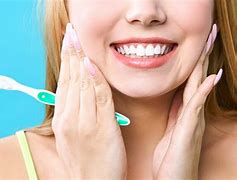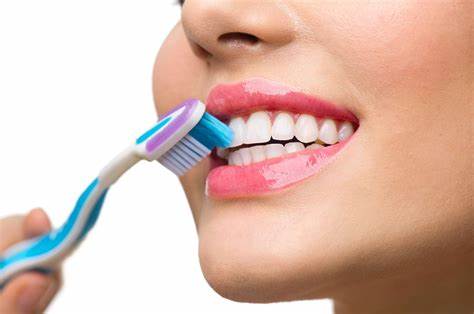Hygiene Tips
Maintaining good dental hygiene is crucial for a healthy smile and overall well-being. Proper oral care helps prevent dental problems such as cavities, gum disease, and bad breath. In this article, we will explore the top 10 dental hygiene tips to keep your teeth and gums in excellent condition. Following these tips will help you achieve and maintain a beautiful, healthy smile for years to come.

1. Brush Your Teeth Twice a Day
Brushing your teeth twice a day is the foundation of good dental hygiene. Use a fluoride toothpaste and a soft-bristled toothbrush to gently clean all surfaces of your teeth. Make sure to brush for at least two minutes each time. Brushing helps remove food particles, plaque, and bacteria that can cause tooth decay and gum disease.
Tips for Effective Brushing
- Hold your toothbrush at a 45-degree angle to your gums. It is one of the hygiene tip.
- Use gentle, circular motions to brush the front, back, and chewing surfaces of your teeth.
- Don’t forget to brush your tongue to remove bacteria and freshen your breath.
2. Floss Daily
Flossing is essential for removing plaque and food particles between your teeth and along the gumline, areas that your toothbrush cannot reach. Make it a habit to floss at least once a day, preferably before bedtime.
How to Floss Properly
- Use about 18 inches of dental floss and wind it around your middle fingers.
- Hold the floss tightly between your thumbs and forefingers.
- Gently slide the floss between your teeth, using a back-and-forth motion.
- Curve the floss around each tooth and slide it under the gumline to remove plaque.
3. Use Mouthwash
Mouthwash can help reduce plaque, prevent gum disease, and freshen your breath. Choose an antimicrobial mouthwash to kill bacteria and an alcohol-free formula to avoid drying out your mouth. This is one of the most important hygiene tip.
Benefits of Mouthwash
- Reduces bacteria and plaque buildup to maintain hygiene .
- Helps prevent cavities and gum disease.
- Freshens breath and leaves your mouth feeling clean.
4. Maintain a Healthy Diet
A balanced diet plays a significant role in maintaining good dental hygiene. Consuming a variety of nutrient-rich foods helps keep your teeth and gums healthy.
Foods for Healthy Teeth and Gums
- Dairy Products: Rich in calcium and vitamin D, which help strengthen teeth and bones.
- Fruits and Vegetables: High in fiber and water content, which stimulate saliva production and help clean your teeth.
- Nuts and Seeds: Provide essential nutrients like calcium, magnesium, and phosphorus.
- Lean Proteins: Such as chicken, fish, and eggs, are rich in phosphorous, which is vital for tooth health.
5. Limit Sugary and Acidic Foods
Sugary and acidic foods can contribute to tooth decay and enamel erosion and spoiles hygiene. Limit your intake of sugary snacks, candies, sodas, and acidic beverages like citrus juices and sports drinks.
Tips to Reduce Sugar and Acid Intake
- Choose water or milk instead of sugary drinks.
- Eat sweets and acidic foods in moderation and rinse your mouth with water afterward.
- Chew sugar-free gum to help neutralize acids and stimulate saliva production.
6. Stay Hydrated
Drinking plenty of water helps keep your mouth moist and aids in the production of saliva. Saliva is essential for neutralizing acids, washing away food particles, and protecting your teeth from decay.
Benefits of Staying Hydrated
- Helps rinse away food particles and bacteria.
- Prevents dry mouth, which can lead to bad breath and tooth decay.
- Supports overall health and well-being.
7. Avoid Tobacco Products
Tobacco use is a major risk factor for oral cancer, gum disease, and other dental problems. Avoiding tobacco products, including cigarettes, cigars, and smokeless tobacco, can significantly improve your oral health.
Effects of Tobacco on Oral Health
- Stains teeth and causes bad breath.
- Increases the risk of gum disease and tooth loss.
- Linked to oral cancer and other serious health conditions.
8. Visit Your Dentist Regularly
Regular dental checkups are crucial for maintaining good oral health. Schedule a dental visit at least twice a year for a professional cleaning and examination.
What to Expect During a Dental Checkup
- Professional Cleaning: Removes plaque and tartar buildup that regular brushing and flossing may miss.
- Dental Examination: Your dentist will check for signs of cavities, gum disease, oral cancer, and other dental problems.
- X-Rays: May be taken to detect issues that are not visible during the visual examination, such as impacted teeth or bone loss.
9. Use Fluoride Products
Fluoride is a mineral that helps strengthen tooth enamel and prevent cavities. Use fluoride toothpaste and consider incorporating other fluoride products into your dental care routine.
Benefits of Fluoride
- Strengthens enamel and makes teeth more resistant to decay.
- Helps remineralize early stages of tooth decay.
- Reduces the risk of cavities in both children and adults.
10. Protect Your Teeth from Injury
Prevent dental injuries by taking precautions during physical activities and avoiding habits that can damage your teeth.
Tips for Protecting Your Teeth
- Wear a Mouthguard: Use a mouthguard during contact sports or recreational activities to protect your teeth from injury.
- Avoid Using Teeth as Tools: Don’t use your teeth to open packages, bite your nails, or chew on hard objects like ice or pens.
- Address Teeth Grinding: If you grind your teeth at night, talk to your dentist about getting a nightguard to prevent damage.
Conclusion
By following these top 10 dental hygiene tips, you can maintain a healthy smile and prevent dental problems. Remember to brush and floss daily, eat a balanced diet, avoid tobacco products, and visit your dentist regularly. Taking proactive steps in your dental care routine will ensure that your teeth and gums stay healthy and strong.
Further Reading and Resources
For more information on dental hygiene and oral health, check out the following resources:
Recommended YouTube Videos
- The Importance of Regular Dental Checkups
- How to Maintain Good Oral Hygiene
- Understanding Gum Disease
Additional Tips and Techniques
11. Choose the Right Toothbrush
Using the right toothbrush is essential for effective cleaning. Opt for a soft-bristled toothbrush that can reach all areas of your mouth without causing damage to your gums or enamel. Electric toothbrushes can also be a good option as they often provide a more thorough cleaning compared to manual brushing.
12. Replace Your Toothbrush Regularly
Toothbrushes wear out over time and become less effective at removing plaque. Replace your toothbrush every three to four months, or sooner if the bristles are frayed. A worn-out toothbrush can also harbor bacteria, which can be harmful to your oral health.
13. Clean Your Tongue
Cleaning your tongue is an important part of oral hygiene that is often overlooked. Use a tongue scraper or your toothbrush to gently clean your tongue. This helps remove bacteria that can cause bad breath and contribute to dental problems.
14. Practice Proper Brushing Technique
The technique you use to brush your teeth can make a big difference in the effectiveness of your oral hygiene routine. Use small, circular motions and avoid aggressive brushing, which can damage your gums and enamel.
15. Be Mindful of Medications
Some medications can affect your oral health by causing dry mouth or other side effects. If you’re taking medication that impacts your oral health, talk to your dentist about ways to mitigate these effects. Staying hydrated and using a saliva substitute can help manage dry mouth.
How to Handle Dental Emergencies
Despite your best efforts, dental emergencies can still occur. Knowing how to handle them can prevent further damage and reduce discomfort.
Common Dental Emergencies and How to Handle Them
- Toothache: Rinse your mouth with warm water and use dental floss to remove any food particles lodged between your teeth. Avoid placing aspirin or other painkillers directly on the gum, as they can cause irritation.
- Chipped or Broken Tooth: Save any pieces of the tooth and rinse your mouth with warm water. Apply a cold compress to the outside of your mouth to reduce swelling.
- Knocked-Out Tooth: Hold the tooth by the crown (the part that is usually visible in the mouth) and rinse it with water if dirty. Do not scrub it or remove any attached tissue fragments. Try to place the tooth back in its socket and see a dentist immediately.
- Lost Filling or Crown: Temporarily cover the exposed area with dental cement or a piece of sugarless gum until you can see your dentist.
Special Considerations for Different Age Groups
Oral hygiene needs can vary based on age. Here are some special considerations for different age groups:
Infants and Toddlers
- Clean your baby’s gums with a soft, damp cloth before their teeth come in.
- Once teeth appear, brush them twice a day using a small, soft-bristled toothbrush and a rice-sized amount of fluoride toothpaste.
- Schedule your baby’s first dental visit by their first birthday.
Children and Teens
- Encourage children to brush their teeth twice a day and floss daily.
- Supervise their brushing until they can do it effectively on their own, usually around age 7 or 8.
- Limit sugary snacks and drinks to prevent cavities.
- Ensure they wear a mouthguard during sports activities.
Adults
- Maintain regular dental checkups and cleanings.
- Address any dental issues promptly to prevent them from becoming more serious.
- Consider cosmetic dentistry options, such as whitening or veneers, to maintain a bright smile.
Seniors
- Pay special attention to dry mouth, which can be more common in older adults due to medications.
- Ensure dentures are cleaned daily and fit properly.
- Continue regular dental visits to monitor for oral cancer and other age-related dental issues.
Conclusion
Good dental hygiene is essential at every stage of life. By following these comprehensive tips and maintaining regular dental checkups, you can enjoy a healthy smile and overall well-being. Remember, a proactive approach to oral care can prevent many dental problems and ensure that your teeth and gums remain in excellent condition.
Further Reading and Resources
For more information on dental hygiene and oral health, check out the following resources:
- American Dental Association
- WebMD Dental Health Center
- Mayo Clinic – Dental Health
- National Institute of Dental and Craniofacial Research
Recommended YouTube Videos
- The Importance of Regular Dental Checkups
- How to Maintain Good Oral Hygiene
- Understanding Gum Disease
- Proper Brushing Technique
- Flossing 101
By incorporating these tips into your daily routine, you can take charge of your dental health and enjoy the benefits of a bright, healthy smile.




